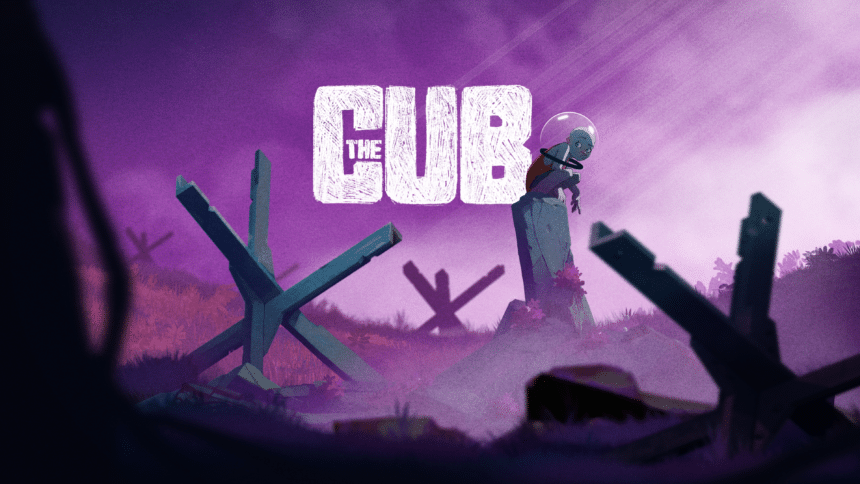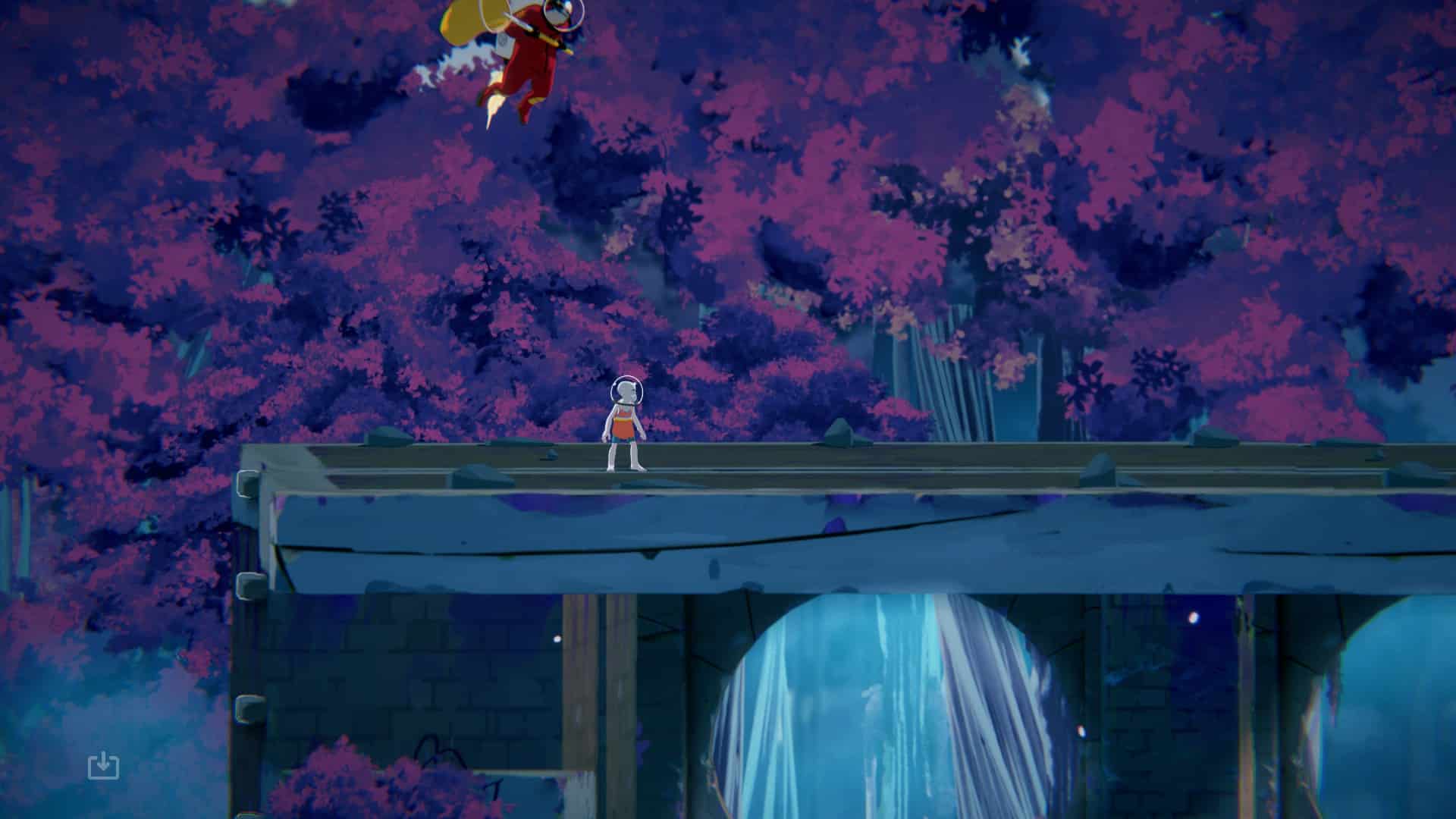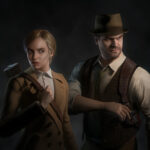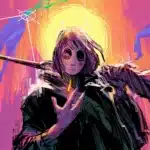Demagog Studio and Untold Tales introduced us to a desolate earth ripe for golfing with Golf Club Wasteland Nostalgia, and they’ve brought us back to explore it as one of the last remaining people of an inhabitable world in The Cub. This loose video game adaptation of The Jungle Book retains the atmosphere of their previous game and builds upon the world with a platforming twist. In my review, I’ll see if The Cub is worth another tour of the lonely Earth.
Raised by Wolves
Unable to save their planet from the Great Ecological Catastrophe, the rich have fled to Mars, and left behind Earth to the beasts and flora. We play as the titular Cub, a human child raised by wolves, who has somehow adapted to the earth’s new atmosphere and has become one with nature itself.

On a recon trip to Earth, the now Martians spot the Cub, do what most humans do, and try to capture it. The Cub’s escape and eventually outwitting them using their adaptability serves as the main stimulus of the entire story.

Most of the lore you gather about the world comes from newspaper clippings, messages, and videos that you can interact with as you make your way through the wasteland.

The immediate story of outwitting the Martians is the bigger draw for me, and while some of the notes you find can be a bit interesting, I still prefer the game’s environmental storytelling aspects more than the “stop and read” moments.
Run, Jump, and Slide
The Cub is largely inspired by SEGA platformers of the late 90s, including Lion King, and Aladdin as well as recent 2D adventure games like INSIDE, and Limbo. In the same spirit, you’ll run through different environments, jump over obstacles, and hang on ropes to push yourself forward. It’s a pretty standard platformer for the most part, and there aren’t many surprises that break the mold of the games it’s inspired by.

A few challenging sections require precise inputs, but for the most part, you’re either running away from an enemy by using your parkour skills, or hiding from them till they avert their gaze. You die by taking a single hit, which makes the character feel vulnerable despite their traversal abilities. Near-instant respawns help with this, and you’re encouraged to keep going thanks to plentiful checkpoints.

Overall, I think the gameplay is serviceable, but doesn’t do enough to stand out from the many similar 2D adventure games where a child has to face impossible odds, and dies in gruesome ways. It feels a bit played out at this point, and I’m waiting for a game that takes the premise a bit further. The Cub is one of the better ones, but if you’ve played one before, you’ve played them all.
Presentation
Arguably the strongest part of The Cub is its presentation. The game looks fantastic and reminds me of the many hand-drawn Disney movies of the late 90s and early 2000s. Its stylized look, excellent use of colors, and hand-drawn animations make it a joy to look at and explore.
The world is full of details that you can appreciate, and often walk you through the moments of disaster now covered with flora, and inhabited by all sorts of wildlife.

Like Golf Club Nostalgia, the custom soundtrack thanks to Radio Nostalgia From Mars is a highlight, and it’s a lot of fun listening to a variety of tracks that often complement what’s going on in the game at any given moment. The tunes make the journey all the more special, and I’ll be listening to the soundtrack for a while.
Verdict
The Cub doesn’t overstay its welcome and manages to deliver an engaging experience throughout its short runtime. The world is beautifully crafted with tons of details to appreciate, and the soundtrack is as catchy as ever. Its gameplay is a bit simplistic, and there aren’t many surprises in that department, despite a few challenging sections. I like the game more when it’s using the world to fill in the gaps rather than relying on notes to spoon-feed stories of the world left behind.

What did you think of our review of The Cub? Share what you think about it in the comments below.
This review is based on the PC version of The Cub. The key was provided by Untold Tales.











